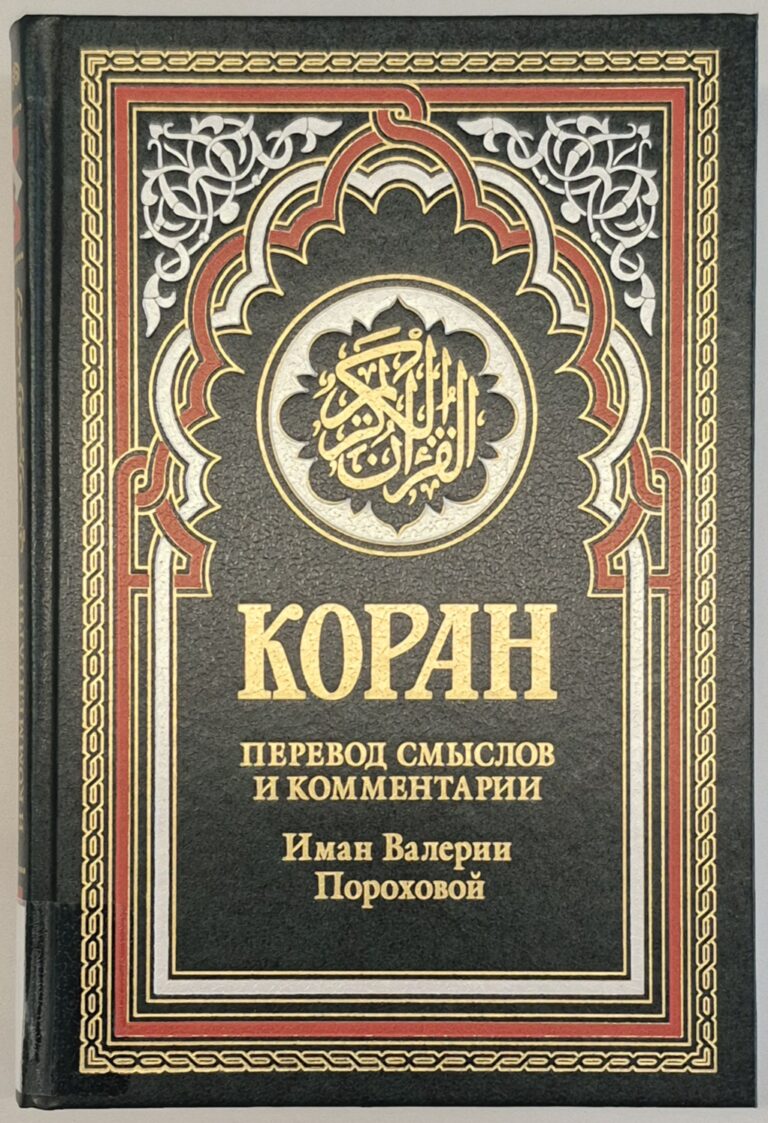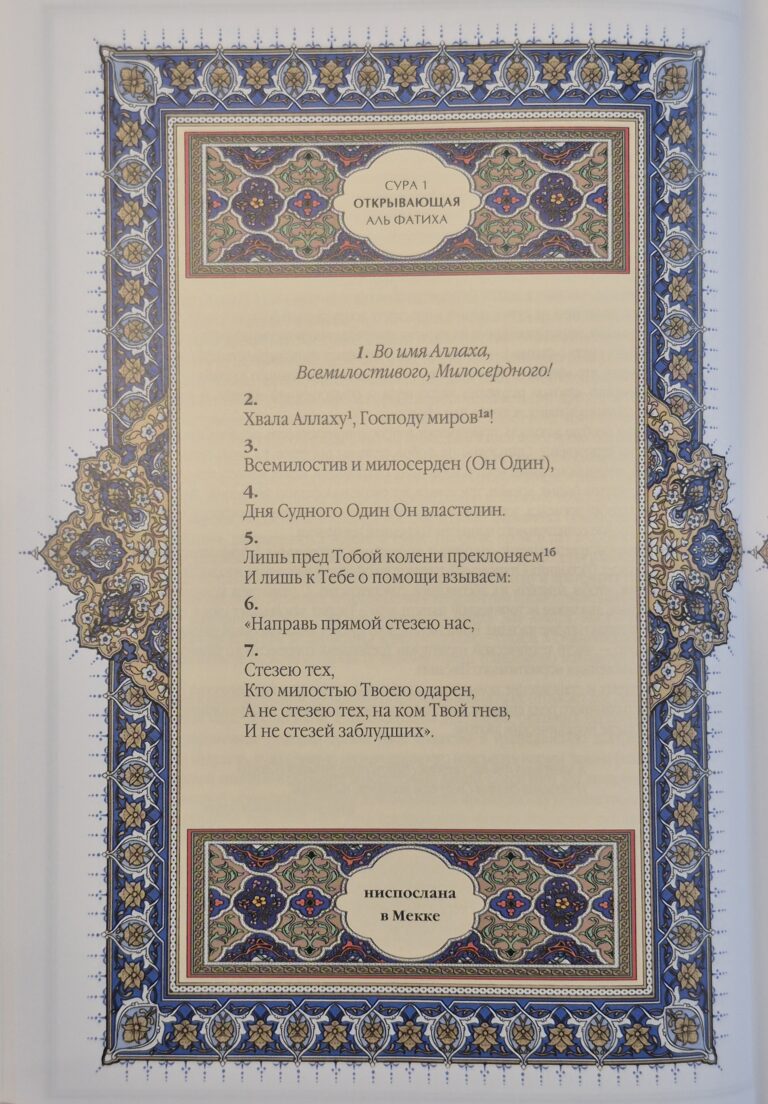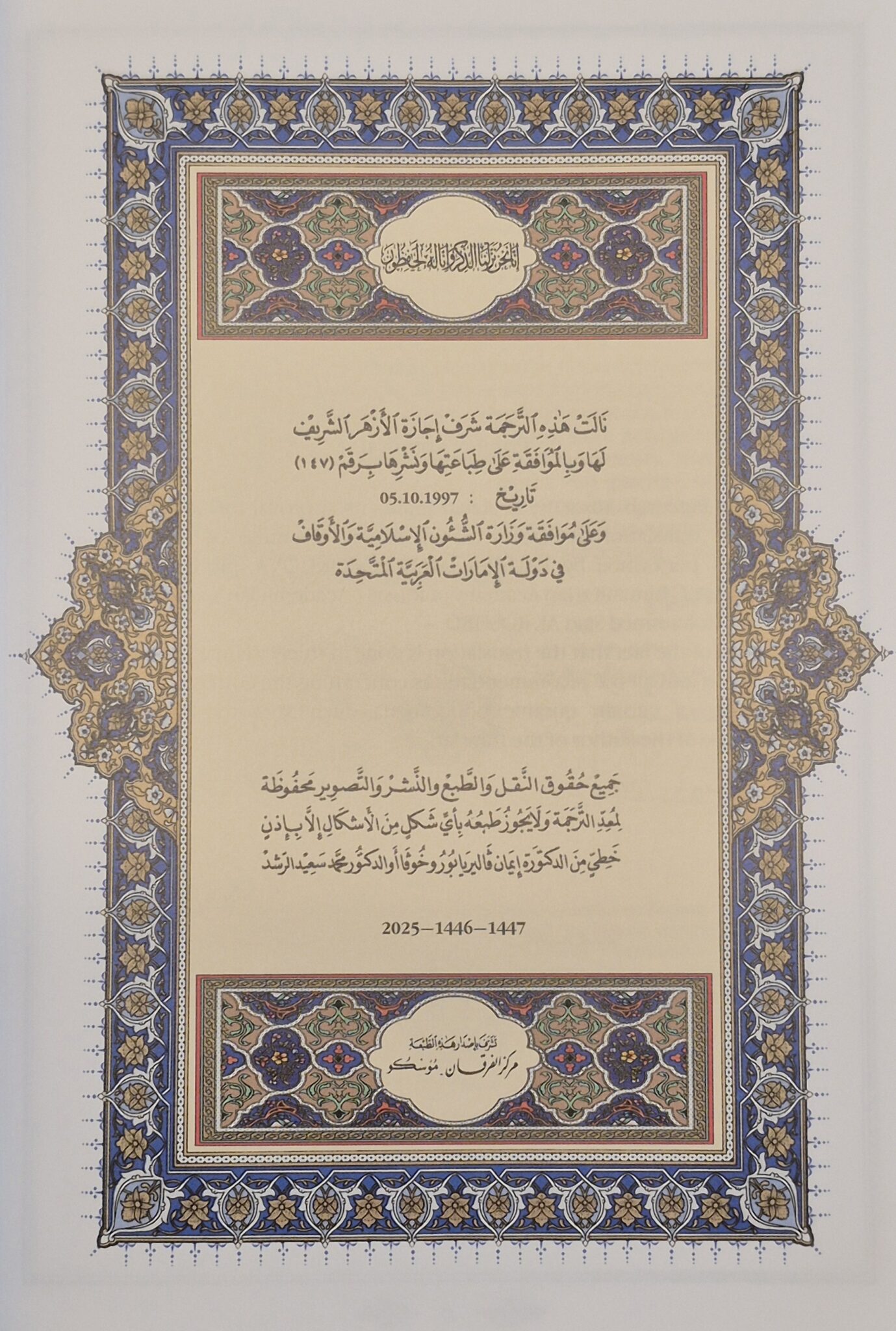A poetic doorway to the Qur’an in Russian
"the first translator to convey the heavenly music of the Quranic verses" (Andrey Bertels)
The Aga Khan Library houses a number of distinctive translations of the Qur’an, among which is a recent and notable acquisition: a poetical Russian translation by Valeria (Iman) Porokhova titled Коран: перевод смыслов и комментарии. This work is more than a mere translation—it is an artistic and spiritual endeavour to render the Qur’an in a form that resonates with the musicality and emotional depth of the original Arabic. Porokhova, both a believer and a poet, approaches the Qur’an with reverence and creativity, crafting a verse translation that seeks to evoke the spiritual cadence of revelation in the Russian language.

Valeria Mikhaylovna Porokhova, later known as Iman Porokhova after her conversion to Islam, was born on May 14, 1940, in Ukhta, located in the Komi Republic of Russia. She graduated from Moscow State Pedagogical Institute of Foreign Languages and worked as a lecturer for 18 years. Next, She worked at the Russian Academy of Natural Sciences and was also a professional interpreter from English. In 1975, she married a Syrian scholar and later moved to Damascus, where she embraced Islam and began work on her translation of the Qur’an. This translation, completed in 1991, was notable for being the only Russian version rendered entirely in verse and approved by Islamic scholars across several countries. Porokhova passed away in Moscow on September 2, 2019, at the age of 79, and was buried at Khovanskoye Cemetery in the Russian capital.

Porokhova’s rendition is a poetic interpretation of the Qur’an’s meanings, enriched with exegetical commentary. Rather than adhering strictly to literal translation, she prioritises rhythm, imagery, and emotional resonance. Her aim is to reflect the affective power of the Qur’an, allowing readers to engage with its devotional atmosphere.
One of the strengths of this translation lies in its musicality. The verse form captures the solemnity and cadence of the Qur’an, making it especially suitable for both public recitation and private reflection. Porokhova’s elevated diction and vivid imagery evoke a sense of awe and contemplation, aligning with the Qur’an’s spiritual purpose.
However, this approach does come with certain limitations. The poetic nature of the translation can sometimes distance readers from the literal meanings of the original Arabic, as aesthetic choices may paraphrase or compress theological nuances. Additionally, Porokhova’s use of high and occasionally archaic Russian may feel remote to contemporary readers, potentially obscuring technical or doctrinal terms. From a scholarly perspective, some specialists may prefer prose or semi-literal translations for academic study, raising debates about the balance between accuracy and aesthetic fidelity. Students engaged in comparative tafsir or Islamic jurisprudence will likely need to consult a more literal Russian edition alongside the Arabic text for deeper analysis.

This translation will particularly appeal to readers who seek beauty and spiritual depth in religious literature—those who value texts that move the heart as much as they inform the mind. It is also well-suited for newcomers to Islam, as the commentary provides accessible guidance without overwhelming detail. Communities that engage in congregational reading or oral recitation may find the rhythmic structure especially beneficial for enhancing attention and memory.
As with most translations, to gain the most from Porokhova’s translation, readers are encouraged to pair it with a more literal Russian edition for study purposes, while using her poetic version for devotional reading and reflection. Reading aloud can enhance the experience, allowing the verse form to unfold in the ear and guide the pace of engagement. Keeping a glossary of key theological terms—such as таква (taqwa), шirk (shirk), or the names of prophets—can aid comprehension. For more complex passages, consulting classical tafsir will deepen understanding and provide interpretive context.
In conclusion, Valeria Porokhova’s translation of the Qur’an stands out for its beauty and devotional tone. While it may sacrifice some literal precision, it offers a spiritually rich and emotionally resonant experience for Russian-speaking readers who are attuned to poetic expression.
Sources
Extracted and adapted from:
First translator of Qur’an into Russian, Sr Valeria Porokhova, returns to her Lord – Islam21c
Valeria Mikhaylovna “Iman” Porokhova (1940-2019) – Find a Grave Memorial
Valeria Porokhova, Prominent Translator Of Koran Into Russian, Dies At 79
Russian Translator of Quran Dies Aged 79 – rahyafteha
The First Russian Muslim Woman Who Translated the Holy Qur’an into Russian: Iman Valeria Porokhova